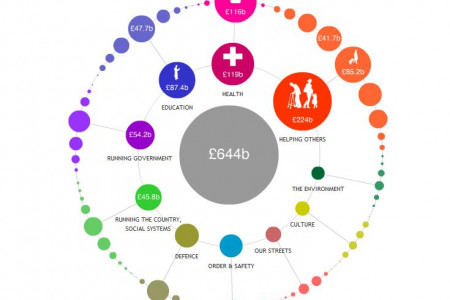
Weird, Unusual Taxes We Have Had Throughout History
STRONGE AND UNUŠUAL TAXES Benjamin Franklin famously said: "IN THIS WORLD, NOTHING CAN BE SAID TO BE CERTAIN EXCEPT DEATH AND TAXES." Here are some of the strangest and most surprising taxes that have ever been implemented. Some are still on the books today, while others have long been abandoned. PEE TAX During the 1st century AD, Roman emperor Vespasian placed a tax on urine. The ammonia found in the bodily fluid was a key ingredient for several chemical processes, such as laundering woolen togas. Urine was collected from public urinals and subsequently sold. WINDOW TAX In 1696, England began taxing houses based on the number of windows they had. This led to many houses having very few windows in order to avoid paying the tax. Eventually, this became a public health problem and ultimately led to the tax's repeal in 1851. WALL PAPER TAX In 1712, England imposed a tax on printed wallpaper. Builders avoided the tax by hanging plain wallpaper and then painting patterns on the walls. THEWIG PERFUME TAX 1. In 1795, England put a tax on the aromatic powders that men and women could put in their wigs. When the perfumes were taxed, the hairpieces became stinkier, and eventually led to a dramatic decline in the popularity of wigs. THE PREPARED FOOD TAX Some cities, like New York, place a special tax on prepared foods. So, a sliced bagel for example, would be taxed once as food and then again as prepared food, thus creating a sliced bagel tax. Ь THE NON-ESSENTIAL RI NJ DE ITEMS TAX GA AL In Colorado, essential food items are tax-free, but straws and cup lids are subject to sales tax because they are considered to be non-essential food items, THE JOCK TAX 30- Many cities and states levy a "jock tax" on any income earned by entertainers and athletes while playing in that city. As a result, athletes have to pay taxes on a portion of their income in any place they play. This really adds new meaning to the phrase: "home field advantage". THE BLUEBERRY TAX Maine has a special tax on blueberries, which are a valuable state resource. 99% of wildblue berries in the US are produced in Maine so it makes sense that the state wants to stay on the cutting edge of research and production. The tax is allotted for those purposes. THE TVTAX In England, there is a tax on televisions. If you own a television in your home, you must pay an annual fee, previously called a television license, per set. Color televisions are taxed at a higher rate than black and white televisions. The strangest iteration of this tax involves the blind: If a person is legally blind and has a TV at home, they are still required to pay the tax, but only half. 10 TAX FUR THE In Minnesota, there is a tax on fur, though other clothing materials are unaffected. To stay warm during Minnesota winters, you can opt for leather or wool, but fur garments are taxed at 6.5%. 11 THE CANDY TAX In some cities, like Chicago, candy that is made with flour is taxed as food at 1%, while candy that is prepared without flour (usually meaning sugar-based) is taxed as candy at 6.25%. refile.com Less Taxing. More Value.
Weird, Unusual Taxes We Have Had Throughout History
Publisher
Brian PattersonSource
http://www.e...ual-taxes/Category
BusinessGet a Quote







